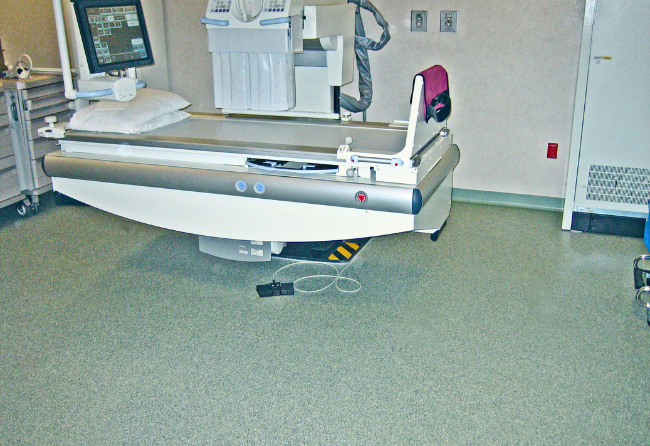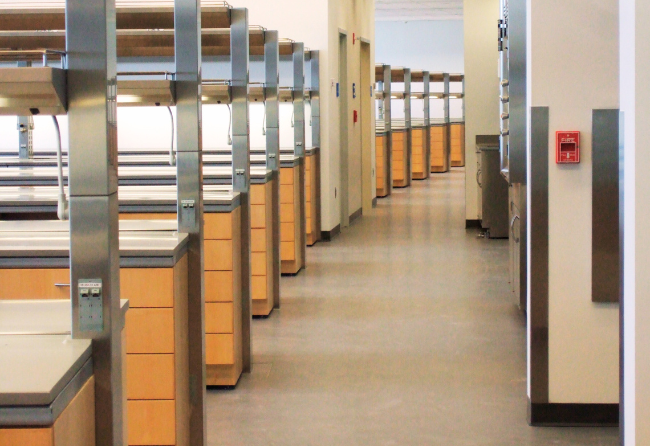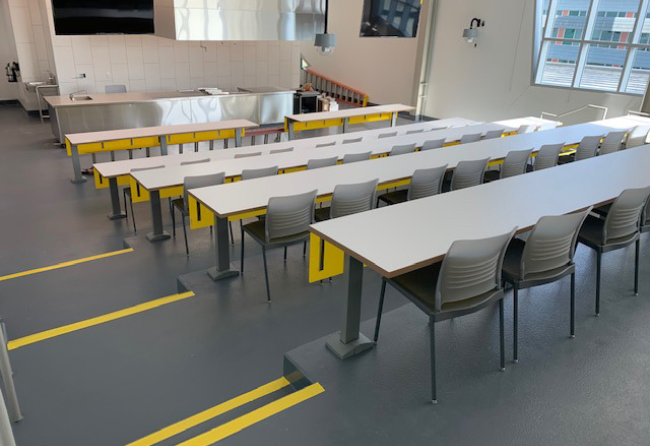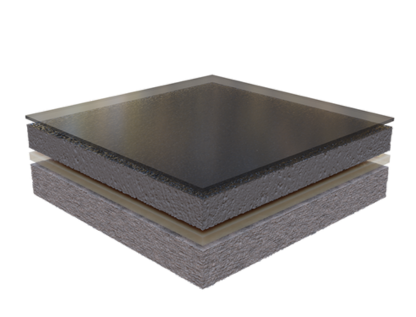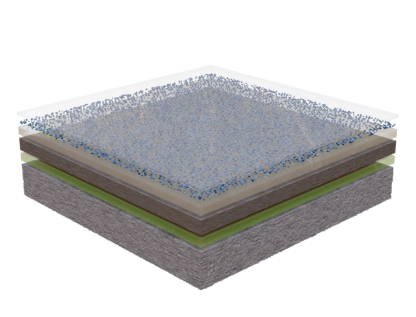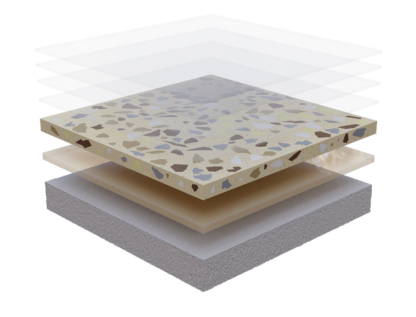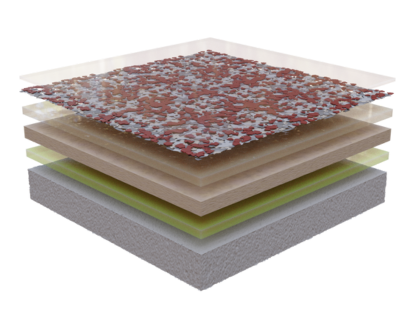Anti-Microbial Floors
Anti-microbial floors help block microorganisms, such as the growth of bacteria, fungi, and molds.
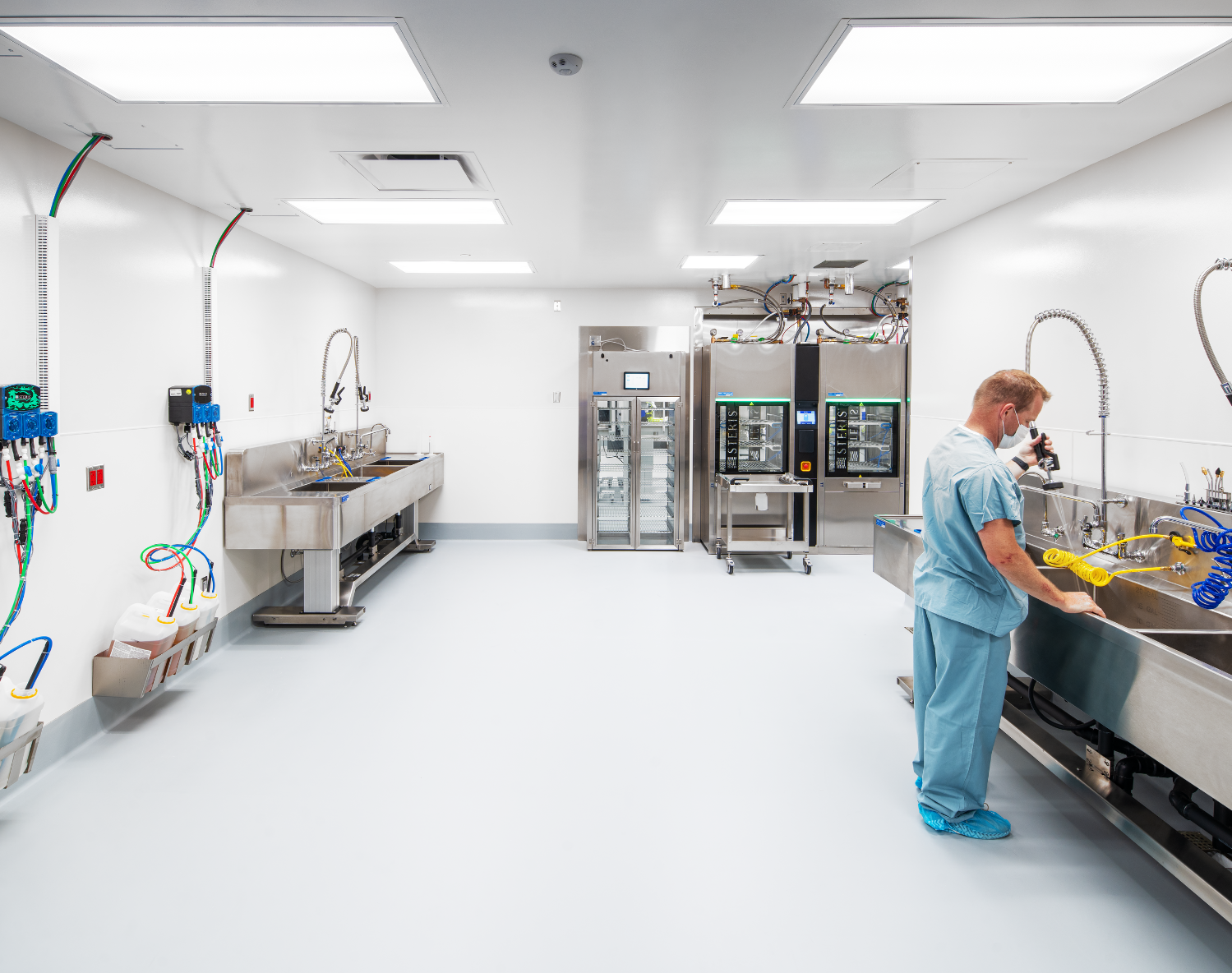
Naturally hygienic poured flooring
Give bacteria, dirt, mold, and mildew no place to hide!
Seamless, poured-in-place floors are naturally bacteriostatic and fungistatic because there are no seams, welds, or grout lines where bacteria can harbor and potentially grow. The seamless structure also makes the floor easier to clean, which supports anti-microbial efforts.
You can also boost your poured floor’s anti-microbial properties with our flooring additive. It’s a permanent, toxicologically safe, EPA-registered, organic thione compound. This additive can be used with any Stonhard flooring system.
What are Anti-Microbial Floors?
Anti-microbial floors are specially designed flooring surfaces constructed or treated to inhibit the growth of microbes, such as bacteria, fungi, and algae. The construction of these floors make cleaning and disinfection easier and more effective for spaces where hygiene is a critical need.
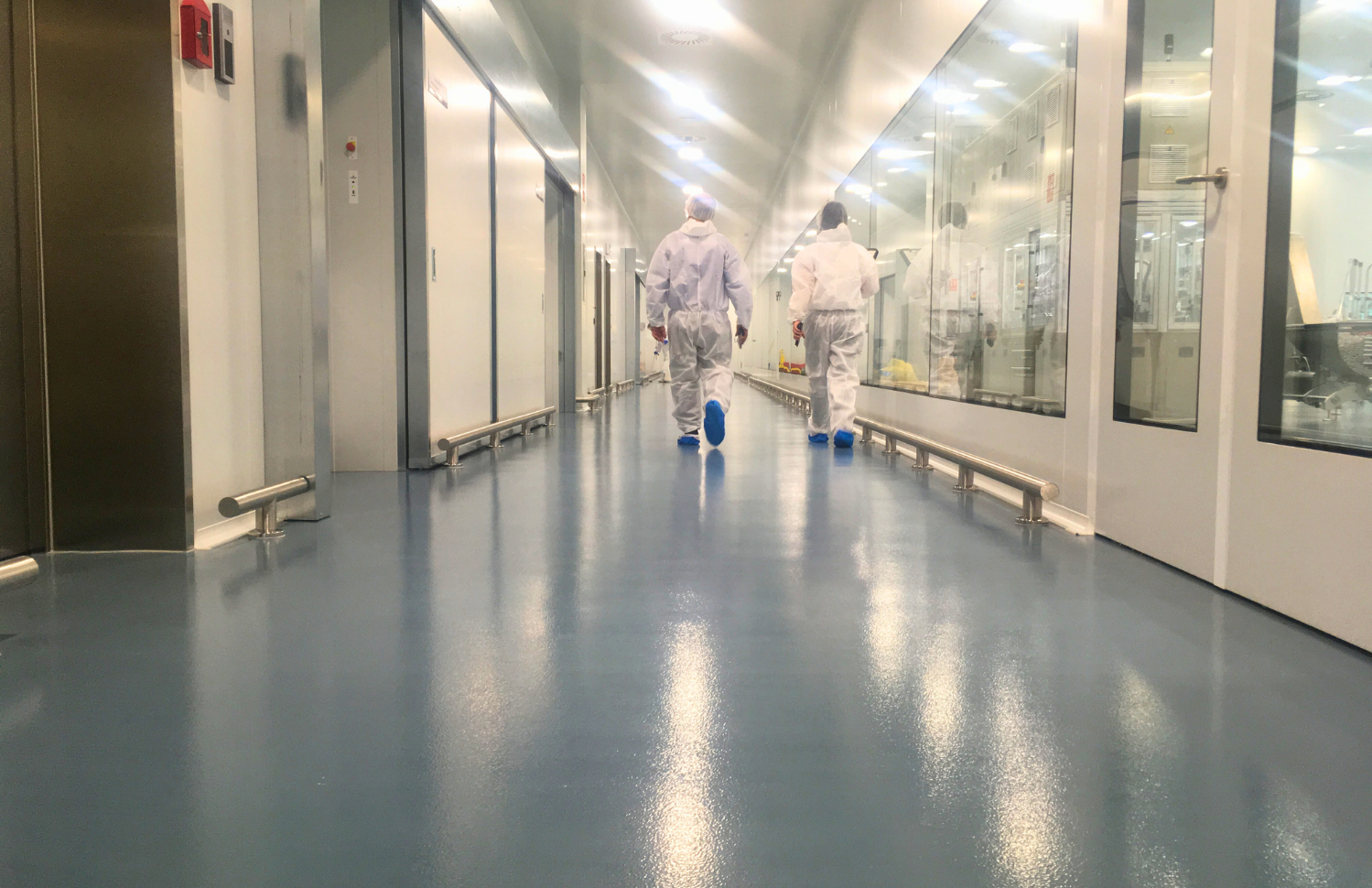
Benefits of Anti-Microbial Floors
Stonhard’s hygienic, anti-microbial floors are an important part of your company’s efforts to control harmful bacteria. They:
- inhibit microbial and fungal growth
- protect against harmful bacteria and contaminants
- promote clean and sanitary conditions
Anti-Microbial Floors Are Perfect for:
Explore a Project
Explore projects where anti-microbial flooring makes a difference. Dive into real-world examples where our expertise delivered flooring solutions built to last in the most demanding environments.
Recommended Anti-Microbial Flooring Products
All Stonhard resin flooring and wall systems are poured-in-place and naturally inhibit the growth of bacteria and fungi.
Plus, each of our Stonhard floor systems can be installed with an anti-microbial, organic thione compound that acts as a permanent bacteriostat and fungistat against a broad range of bacteria and fungi. The active ingredient is EPA-registered and contains no heavy metals. Our team of Territory Managers, Architectural and Engineering Representatives will assist you in choosing the best product for your environment with the look you desire.
FAQ
Got questions? We've got answers. This FAQ section covers the most common inquiries about anti-microbial flooring to help you make informed decisions.
Antimicrobial flooring is a specialized type of flooring that contains built-in protection against harmful microorganisms such as bacteria, fungi, and viruses. These floors are designed with antimicrobial agents integrated into the flooring material during manufacturing, providing long-lasting protection against microbial growth and spread.
Organic matter on a floor provides a nutrient-rich environment for bacteria. Even seemingly clean floors can have microscopic particles that serve as a food source. Bacteria require moisture and humidity to survive. Bacteria survive in a wide range of temperatures, but most thrive in moderate, room-temperature environments. Porous materials such as carpet and unfinished wood can trap bacteria in tiny spaces. Even hard surfaces like tile or vinyl may allow bacteria to harbor in cracks, joints, or grout lines. Disinfecting floors regularly is critical to reducing bacterial presence.
Antimicrobial flooring can be a worthwhile investment, especially in environments where cleanliness and hygiene are crucial. It offers enhanced protection against bacteria and other microorganisms, which is particularly valuable in healthcare facilities, food processing plants, and high-traffic areas. This type of flooring is often more durable, easier to maintain, and can help extend the life of your floors.
However, the decision to invest in antimicrobial flooring depends on your specific needs and budget. While it provides added protection and peace of mind, it's important to remember that it doesn't replace regular cleaning practices. Consider the intended use of your space and the level of hygiene required when deciding if antimicrobial flooring is worth it for your situation.
Related Flooring Features
Expert Guides & Resources
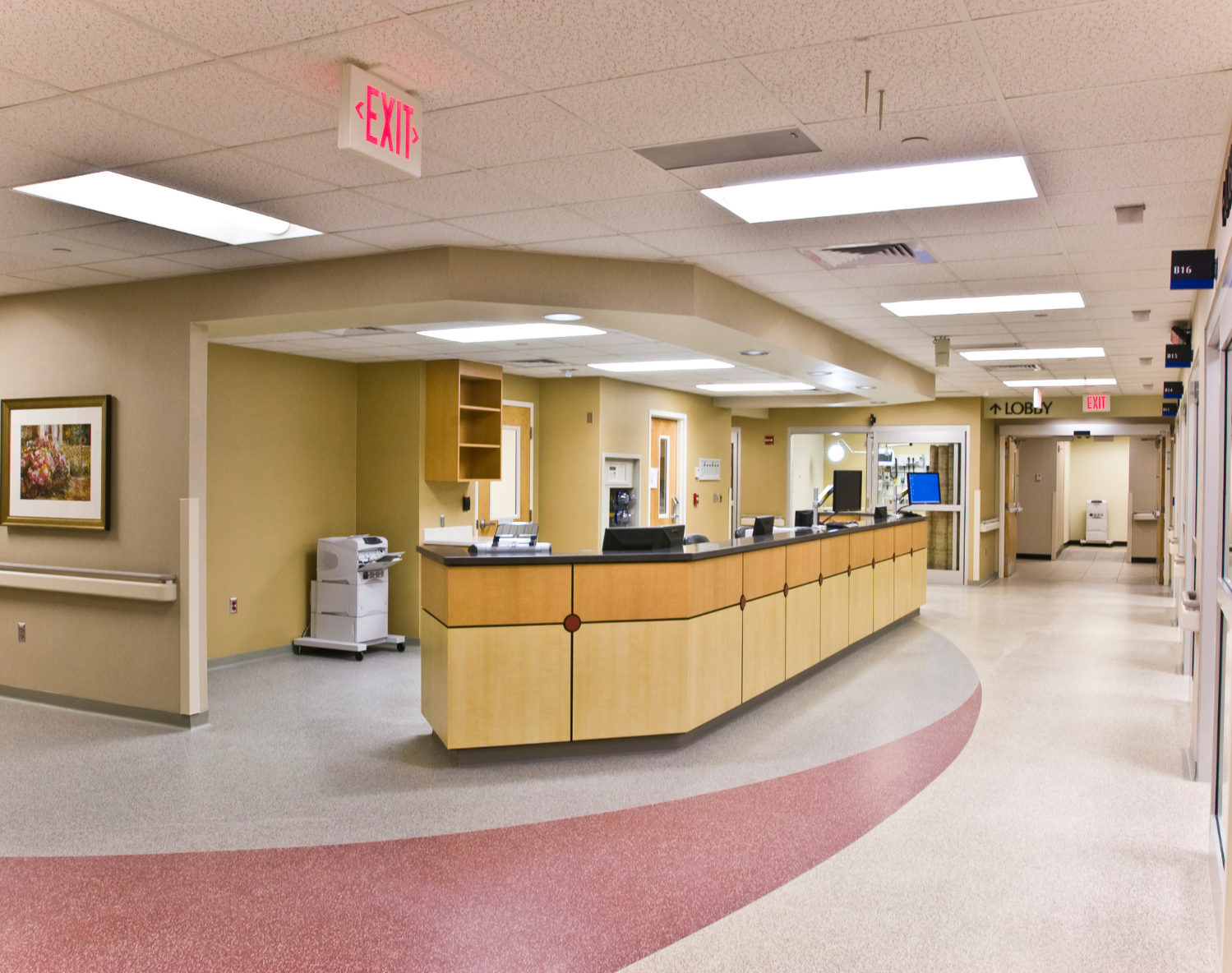
Enhancing Healthcare Environments with Efficient Flooring Systems
As healthcare facilities strive to create safe and efficient environments, the importance of carefully selecting the right flooring cannot be overstated. Hospital flooring plays a vital role in ensuring optimal functionality, hygiene, and aesthetics throughout various areas, ranging from busy operating rooms to comforting waiting rooms.
 Commercial Kitchens
Commercial Kitchens
 Clean Rooms
Clean Rooms
 Public Spaces
Public Spaces
 Cannabis Facilities
Cannabis Facilities

